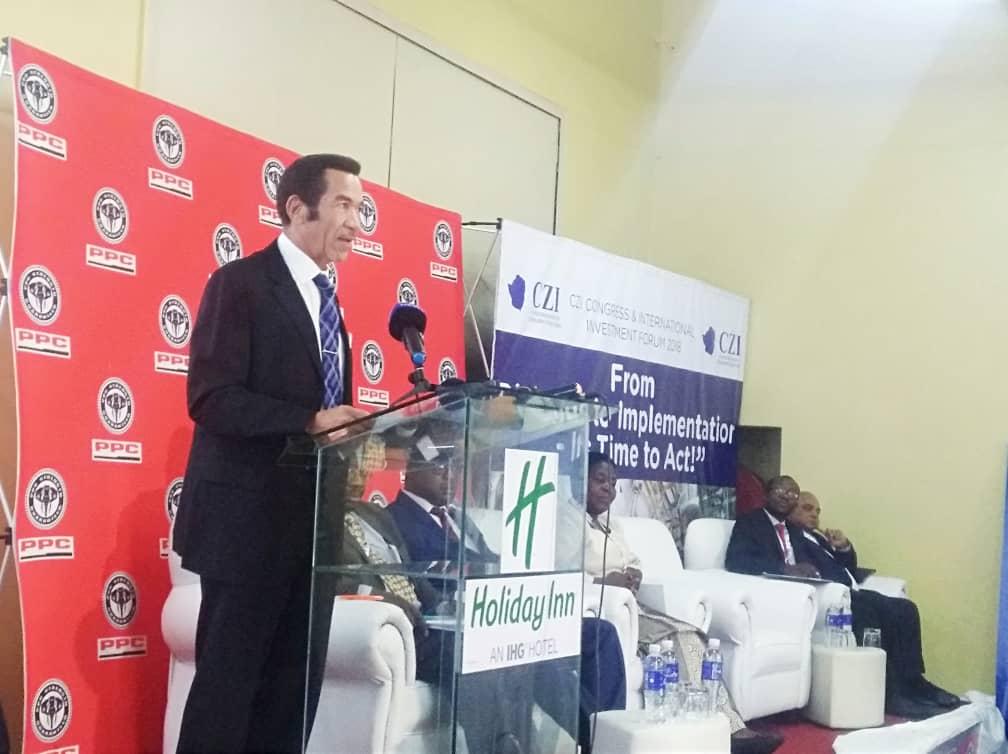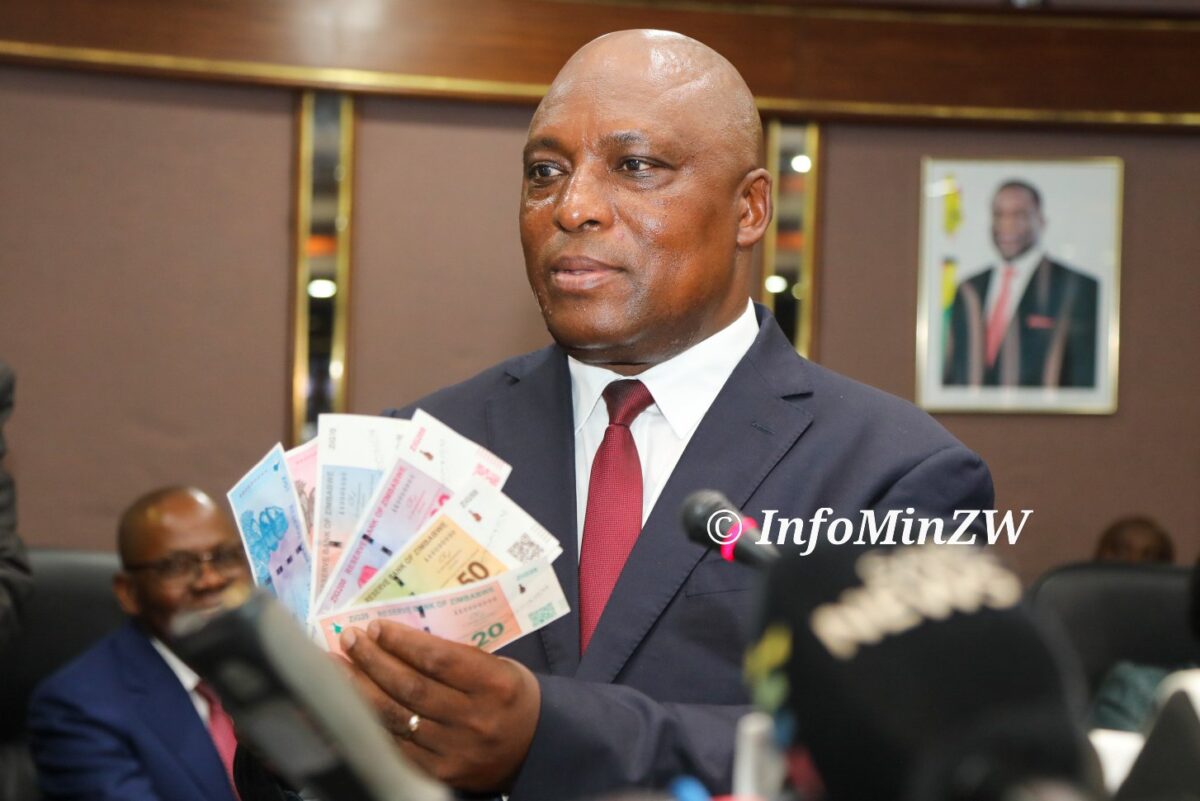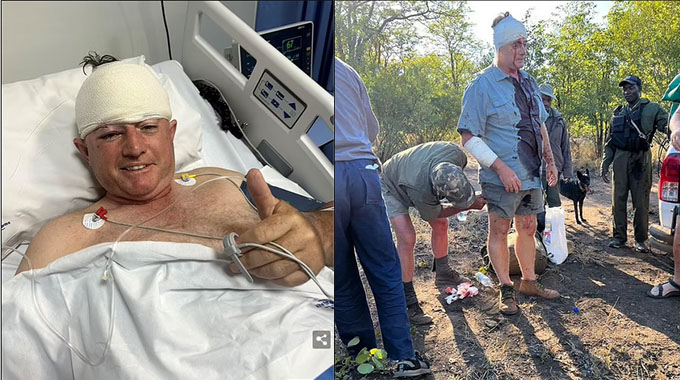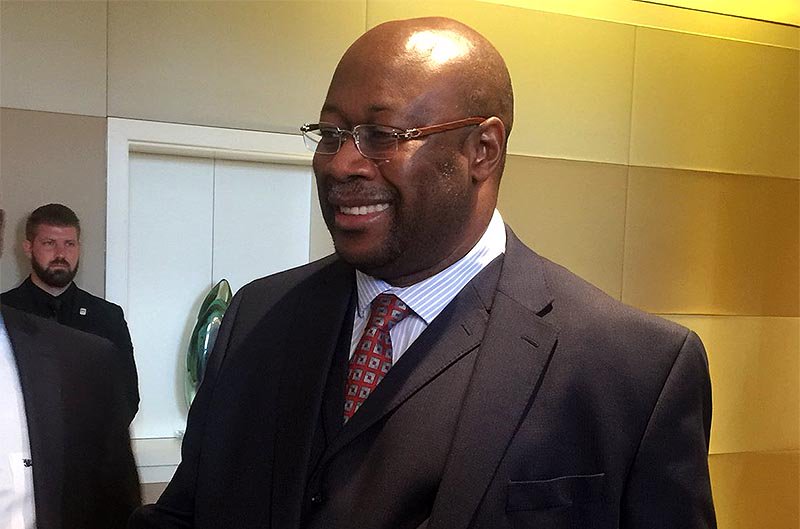BULAWAYO – Zimbabwe must enforce good governance systems, create strong independent institutions and hold public officials to account if the country wants a quick economic turnaround, former Botswana President Ian Khama said on Thursday.
Khama was speaking at a Confederation of Zimbabwe Industries (CZI) congress in Bulawayo, where he was invited to speak on how Botswana leveraged diamonds for economic development and what lessons Zimbabwe can learn from that experience.
“I’m not here to lecture to Zimbabweans on how to run their country and their economy because I believe very strongly that you already have most of what you need. In terms of human resources, we know and we can confirm that Zimbabweans are very innovative and have a very excellent work ethic. Indeed Zimbabweans have contributed to the development and success of Botswana,” Khama said.
“All that is needed in the country is policies and programmes to be put in place to bring about a culture of good governance in order for you to succeed.”
His audience of business executives applauded when Khama, who stepped down in May this year, said economic growth should be driven by the private sector while government acts purely as a facilitator.
He cited the example of Botswana’s independent procurement entity that awards tenders for government work.
“No cabinet secretary can make a decision but the independent body, which has an appeals process for anyone who feels aggrieved,” Khama noted.
“You have natural resources in abundance and we strongly believe in Botswana that economic growth should be driven by the private sector, government acting purely as a facilitator. Botswana attained independence from Britain in 1966 and we were ranked one of the poorest states – happily dependent on foreign aid with per capita of around $70. Agriculture then was sustained by the beef industry which accounted for an estimated 40 percent of the GDP and also the bulk of export earnings. Cattle raring was the primary economic activity for a majority of households and exports of beef accounted for 85 to 90 percent of total exports for the country. Then the discovery of diamonds in 1967 led to a decline of agriculture as diamonds contributed to the national growth in terms of GDP and export values,” he said.
The outspoken former leader noted that afterwards, Botswana rapidly became one of the world’s development success stories since 1989 and was classified as a middle-income country.
“The discovery of diamonds and mining development created an opportunity for Botswana to create robust economic progress. Diamond mining now contributes around 38 percent of national GDP, 80 percent of government income and 35 percent of government levy,” he said.
Confining himself to his administration, Khama said they had dedicated themselves to prudent macroeconomic policies, good governance, sound economic management and strong checks and balances to ensure public accountability or spending was monitored.
“We’ve been accused too much for being overregulated, for having too much bureaucracy when it comes to the checks and balances but you need a compromise. Don’t allow bad habits to develop through fraud to corruption,” he said.
On checks and balances, Khama narrated that during his time in office, a committee was established to assess performance and rate every minister and their permanent secretary.
“The minister would appear before me with that committee and it would inform me of their performance ratings. For the minister, this sat at the back of their mind that they had no time to sit back or for complacency.”
Khama noted that his administration prioritised the ease of doing business, established healthy foreign reserves, created a strong, stable currency and has an independent, vibrant central bank.
He emphasised the need to let those in power know that they could be arrested anytime for corrupt activities as they were not above the law.
“Fighting corruption has contributed to economic development. We have reinforced that through independent entities to combat corruption. First, we said zero tolerance but that statement has to be followed by action. We created a directorate, which is independent and is able to investigate anybody so no-one is protected, whatever label, whether minister or politician. The directorate investigates everybody. As long as there is concrete evidence that someone is in conflict, they would be prosecuted and go to court,” Khama told his audience.
“The key thing is to let people know they are not above the law and no-one is immune. That sends a message. In my time, a couple of ministers went to court but were acquitted but that demonstrated we do not bend rules for anyone.”
He said politicians must desist from making decisions based on political expediency, usually at a cost to the fiscus.
“It’s so easy in a democracy that you rely on people to vote for you and then you throw money on issues that you think are populist but at the end of day they come back to bite you and that’s unsustainable. It is very important to resist the urge to do so and eventually you will be rewarded at the polls for doing the right things,” he said to cheers.
In Zimbabwe, Khama noted that politicians had to respect their constituencies and honour what they promised in their manifestos.
“Manifestos don’t give you a license to stay away from people for five years without coming back to them for a review of your mandate. You have to constantly engage with people to find out if what you are doing is to their liking and if there is anything new they want you to introduce in that five-year programme.
“We need to come to a stage where we put politics and elections aside. Every Zimbabwean must work to bring about what you desire because other things are going to hold you back. Like I said, I can’t tell you what to do but certainly it happens in Botswana; see South Africa what goes on in their parliament, sometimes you wonder how the government can make progress. Look at the British parliament as well and you see how they go at each other across the floor. I’m sure it happens in this country as well.
“Sometimes politics, even though it is the way, are we politicians really the right people to be leading countries at the end of the day? Is this the best we can do?”
The former president also urged captains of industry to always tell the truth and bring effective decision making.
“Why would one not want to speak the truth? It not only applys to captains of industry, I know from my experience and it happens in other countries as well that sometimes people want to lie such as government officials. Even a minister would not tell you everything or the whole story, they would tell you what they think maybe you want to hear.”















